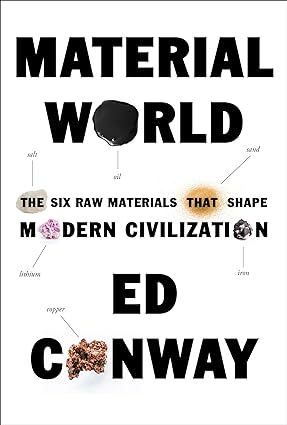The Google LFOD News Alert recently rang for this Concord Monitor LTE from Bill Wishart, notifying his readers that Lafayette would be in tears. Wishart's LTE in its entirety:
On the 20th of May, we will celebrate Lafayette, the French nobleman influential in tipping the balance of the Revolutionary War in favor of us. Our rebellion succeeded, in great part, due to his agreement with the self-evident truths of The Declaration of Independence, generating a passion in him so great that he was willing to sacrifice his name, fortune, and if need be his life in this noble experiment that is America. Today, I read that our legislature is poised to pass a bill forbidding transgender athletes from competing based on an arbitrary assignment of gender at birth. I say to you that you do not believe in the self evident truths.
You do not believe that all men are created equal! You do not believe that they are endowed by their Creator with inalienable rights! You do not believe that governments are instituted among men to ensure those rights! You do not believe that “Live Free or Die” applies to all in New Hampshire! You may, by accident of birth, be a citizen of the country called The United States of America. You are not, in your hearts and minds, an American! I dare say, that if Lafayette made his tour today, he would be in tears after witnessing your betrayal of the fundamental principles of this noble experiment.
Gee, Bill. "Arbitrary assignment of gender at birth"? Like coin-flip arbitrary? Really?
Well, let's do the background first. The May 20 thing (indeed) celebrates the bicentennial of Marquis de Lafayette's famous tour of the US in 1824-5. The event (which I believe is happening in Concord, NH) is described here.
This choice is odd, given that Lafayette didn't even arrive in the US for his tour until August, 1824. But never mind that. There will undoubtedly be shindigs scheduled on the actual bicentennial, like his arrival in Portsmouth NH on September 1. (I've always assumed Lafayette Road, the old path of US Highway 1 in Portsmouth, was named that for the route Lafayette took on his way here.)
But never mind that. Is there something about Lafayette that makes it seem he'd be a cheerleader for letting biological boys compete against biological girl athletes?
Okay, a little googling finds a good deal of wishful thinking by advocates trying to out him as gay (example). But that's it.
More likely: if Lafayette (somehow) shed himself of the sexist beliefs of the day (he penned the Declaration of the Rights of Man, sorry ladies) and was time-machined to our century, he'd be horrified at the sexual segregation implied by having separate and unequal teams for athletes, simply due to the biological accident of their conception. Isn't that equally unjust as racial segregation?
"It's time to sexually integrate sportsball teams at all levels, professional and amateur, mes amis! Vivre Libre ou Mourir!
"Do this, or I shall cry bitter tears!"
Also of note:
-
I miss the Tea Party. But, as Jonah Goldberg notes, it hadn't been healthy for a long time and… The Tea Party Movement Died With a Whimper.
With the news that libertarian advocacy group FreedomWorks is going the way of Blockbuster, the Tea Party era is officially over. Of course, it’s been functionally dead—or mostly dead—for a while. It’s been a while since anyone in national Republican politics of any note talked like a Tea Partier, never mind associated themselves with the cause. I’m sure there are some who’ve gone to ground, like old-style Communists keeping their heads down in various backwaters, hoping no one recognizes them.
For a sense of how the Tea Parties were like St. Elmo’s Fire—suddenly lighting up the firmament and burning out just as quickly—consider that in 2010 The New York Times Magazine introduced Marco Rubio to the country with a cover story titled, “The First Senator from the Tea Party?”
The question mark referred to whether or not Rubio would successfully defeat Charlie Crist in the primary to become a senator—not whether he was a Tea Party guy. Funnily enough, that deserved a question mark, too. Or at least an expiration date. Today, Rubio is a devout industrial planner—but only when “done right.”
Indeed, the Times profile, written by Mark Leibovich, is a fascinating historical snapshot. “If there is a face for the future of the Republican Party, it is Marco Rubio,” Mike Huckabee told Leibovich. “He is our Barack Obama but with substance.” Today Huckabee talks about anything that smacks of the Tea Party-style libertarian principles like they’re nothing a course of penicillin can’t clear-up.
Later in the article Jonah quotes Jim Geraghty quoting Eric Hoffer: “Every great cause begins as a movement, becomes a business, and eventually degenerates into a racket.” It happened really quickly for the Tea Party movement.
-
And speaking of degenerating into a racket… Also at the Dispatch, John McCormack wonders: Will the Trumpification of the Libertarian Party Actually Hurt Donald Trump? He's actually been paying attention to the tussles inside the clown car that is today's LP:
Until the Trump invitation, the Libertarian Party had mostly been an afterthought for outside observers in the 2024 presidential campaign, but it shouldn’t have been. Whoever wins the party’s nomination for president later this month at the Libertarian National Convention will be on the ballot in at least 37 states, including the battlegrounds of Arizona, Georgia, Wisconsin, Michigan, and Nevada. The last two presidential election were decided by a few states where the victor prevailed by less than 1 percentage point, so it’s plausible the Libertarian candidate could sway the outcome—even if he falls short of winning the 3.3 percent of the national popular vote won by 2016 Libertarian nominee Gary Johnson or the 1.2 percent of the popular vote garnered by 2020 nominee Jo Jorgenson.
So why, exactly, did a minor party whose raison d’être is to reject the two major parties invite the presumptive GOP nominee to potentially overshadow the convention where Libertarian Party delegates will pick their own presidential nominee? That is a hotly contested question within a Libertarian Party that is deeply divided between two factions—the Mises Caucus and the Classical Liberal Caucus.
The Mises Caucus is the Libertarian Party’s largest faction whose members swept to power at the party’s 2022 convention in a backlash against what they saw as an increasingly politically correct party that didn’t do enough to stand up to COVID lockdowns and was happy to run Republican Party retreads for president. The Classical Liberal Caucus is filled with, well, self-styled classical liberals who see Mises Caucus types as Trump-adjacent bigots and kooks—or at least way too tolerant of bigots and kooks.
Well, I'm surprised the "Classical Liberal Caucus" exists. Good for them. If they prevail against the (misnamed, I think) Mises folk, I'll probably be able to vote for their nominee. Irrelevant, but gratifying.
-
Not as well illustrated as Birds of America, but still valuable. Robert Graboyes performs a public service in bringing out A Field Guide to Guaranteed, Certified, Definitely-Not-Antisemitic, We-Are-Hamas Global-Intifada Free-Range Encampments. His summary is up top:
As American campuses boil over with hatred for Israel and for Jews in general, it’s helpful to know what we’re dealing with. Below are five brief lessons:
Michael Moore channels 19th century German racists to prove that protestors calling for the mass murder of Jews are not antisemitic.
Professor David Bernstein notes that, like today’s campus protestors, most antisemites of the past were quite fond of Jews—as long as said Jews were sufficiently contemptuous of other Jews.
Israeli grad student Iddo Gefen discovers disturbing antisemitism at Columbia and then veers toward futile left-of-center virtue-signaling.
Karol Markowicz argues that threats to American Jews reside primarily in blue states and leftward political groupings.
I reiterate my recent argument that my alma mater, Columbia University, should be eviscerated—both for its own misdeeds and as a warning to like-minded institutions.
Each lesson is detailed and devastating.
-
What's really important is… In the "watch what they do, not what they say" department, brought to you by Tyler Cowen:
Just to confirm:
— John Arnold (@JohnArnoldFndtn) May 12, 2024
- Climate change is unprecedented risk
- Mass adoption of EVs is vital
- Adoption has slowed bc lack of low-priced options
- US companies unable/unwilling to make low-priced EVs
- China is global leader in low-priced EVs
- US to hit China with 100% EV tariffsEVs versus unionized auto workers… it was probably not a close call.
| Recently on the book blog: |


![[The Blogger and His Dog]](/ps/images/me_with_barney.jpg)



